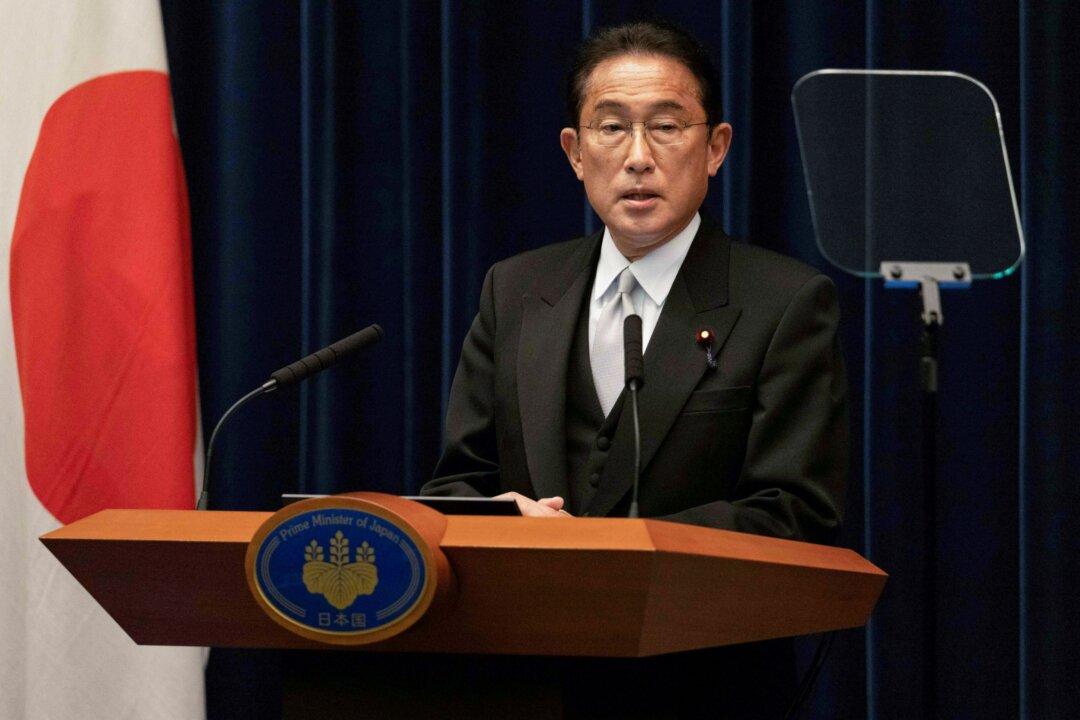TOKYO—Japanese Prime Minister Fumio Kishida on Friday urged companies whose earnings have recovered to pre-pandemic levels to raise wages by 3 percent or more at their labour talks next spring, aiming to achieve a virtuous cycle of growth and wealth distribution.
Kishida also told his “new capitalism” panel meeting that the government would take steps to raise the incomes of welfare workers such as childcare workers, nurses, and caregivers by 3 percent continuously.





